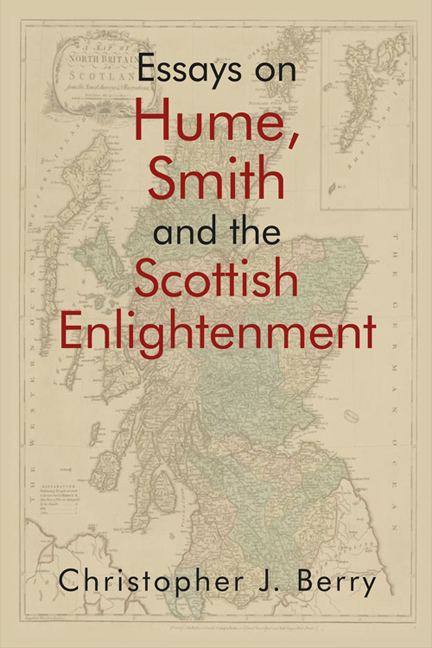5 - Sociality and Socialisation
Published online by Cambridge University Press: 06 May 2021
Summary
James Dunbar commented that humans are sociable long before they are rational (EHM 16). The implications of that remark establish the leitmotif for this chapter. Positively, these extend to an understanding of the effects of sociality on the individual and also to an understanding of the principles that produce and sustain social coherence. As we shall see, these two aspects are importantly linked in the writings of the Scots and constitute one of the most salient and characteristic features of their thought. This particular priority has at least the further implication of displacing claims that have been made for the role of reason. The first (brief) part of this chapter will consider this negative implication, the second, more extensive, part the more positive implications.
The claim that humans are social before they are rational means that it is literally preposterous to explain human social living as the product of reason, understood here as the process of calculation. The Scots alleged that such an explanation had been been made by those thinkers who subscribed to the idea of an original or social contract. The Scots, however, were being somewhat, if not entirely, disingenuous in making this allegation. The contractarian argument dealt not with social living per se but more specifically with civic or political living, that is, with the establishment of government. Indeed, it was central to the argument of mainstream contractarians (that is, excluding Hobbes) that the pre-political condition was not asocial. What they were centrally interested in was the legitimacy of government: what gave a particular individual or group the right or authority to command others.
Once the principle of natural rulership was abandoned, government or civil society could be conceptualised as an artificial construction, a product of deliberate choice. This choice, prompted by the ‘inconveniences’ (to use Locke's terminology) of the pre-political condition (the ‘state of nature’), took the form of a contract. Typically, the terms of this contract were that I would agree to lay aside my natural right to govern myself and obey your rule, provided you protected me and did not interfere with my other natural rights. This is a cost–benefit analysis that makes the role, even the existence, of government a function of individualistic instrumental reasoning.
- Type
- Chapter
- Information
- Essays on Hume, Smith and the Scottish Enlightenment , pp. 75 - 87Publisher: Edinburgh University PressPrint publication year: 2018



